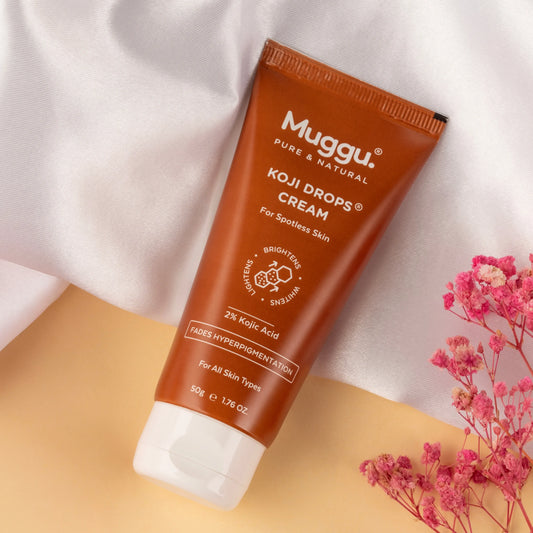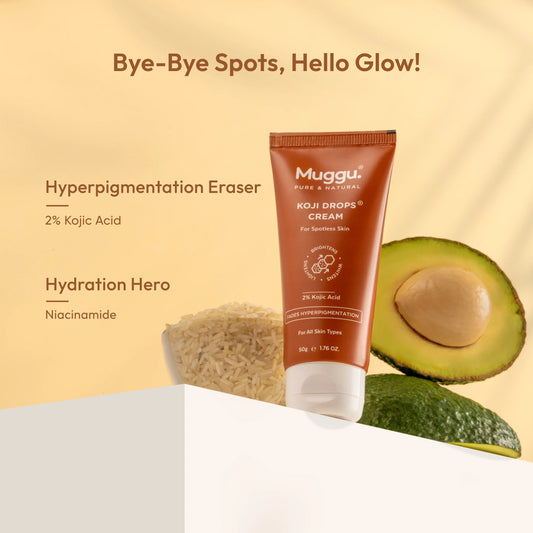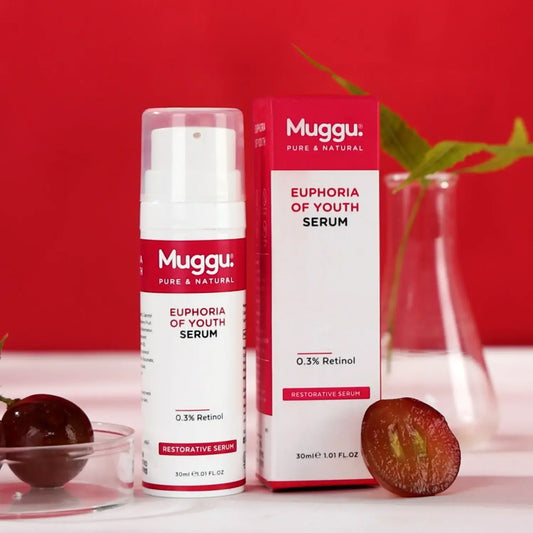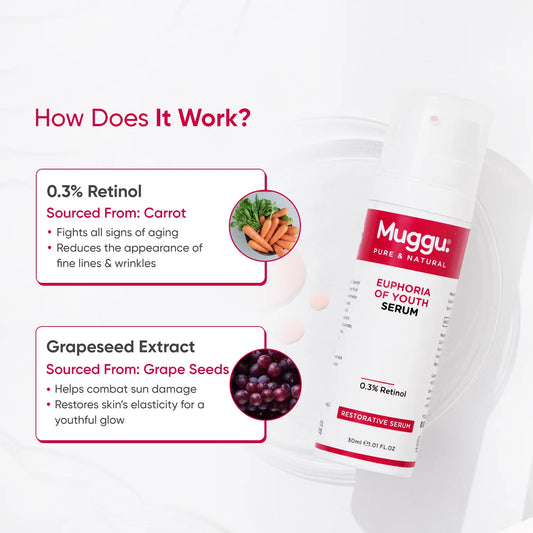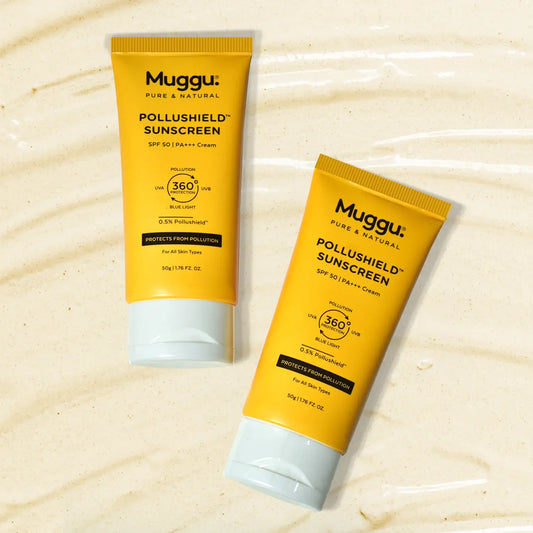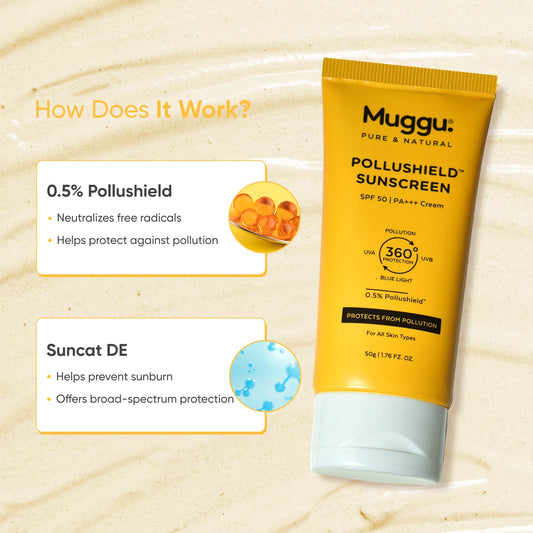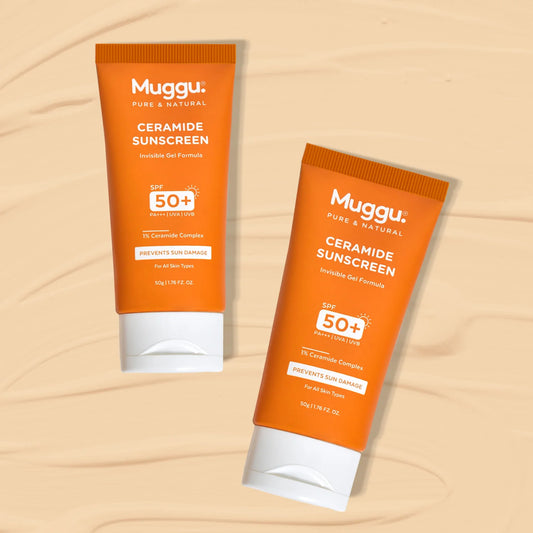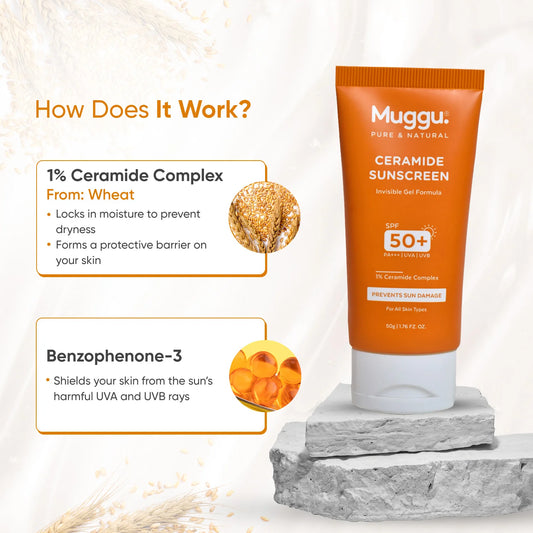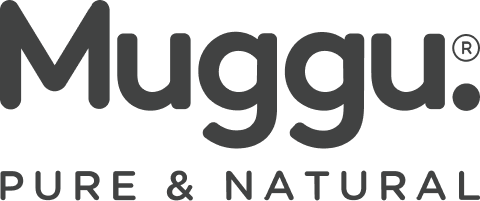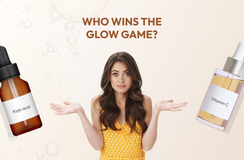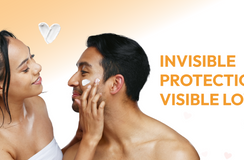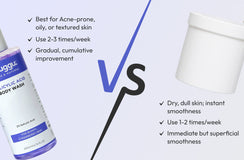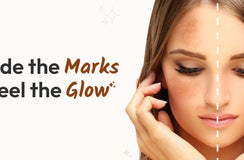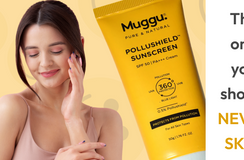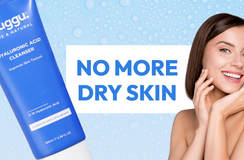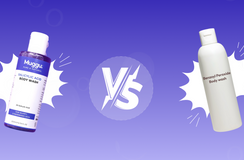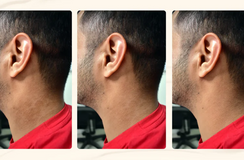Chances are you have heard of retinol. After all, it has garnered much attention and admiration in the ever-evolving skincare world. But what exactly is retinol, and why is it a game-changer in your skin care regimen? If you want to find out more about this ingredient, we have included everything below that you need to know, from its benefits to how it can transform your skincare routine.
What is Retinol?
In the most basic explanation, retinol is a derivative of vitamin A, a powerhouse ingredient known for promoting skin cell turnover and stimulating collagen production. Its small molecular structure allows it to work at a deeper level, penetrating the skin to deliver long-lasting, transformative results. It's a member of the retinoid family and is the one most commonly found in over-the-counter skincare products.
If you're someone who values long-term results over quick fixes, retinol might just be your skin's new BFF.
What Does Retinol Do?
So, what does retinol do that makes it so revered in the skincare community? Here’s how it works! It blocks the excess oil buildup that leads to whiteheads, blackheads, and red bumps. What’s more? Retinol wipes away dead skin cells that make pores appear larger. Intrigued? There’s more!
Retinol is rich in antioxidants, which help repel free radicals and the premature aging they cause. Plus, it boosts collagen production to reveal new, healthier skin cells.
The benefits are vast and varied, making it a versatile addition to any routine. Here’s a breakdown of retinol uses for skin:
Boosts Collagen Production
As we age, our skin's natural collagen production declines, leading to fine lines and wrinkles. Retinol stimulates collagen synthesis, helping maintain your skin's firmness and elasticity.
Accelerates Cell Turnover
Retinol promotes the shedding of dead cells and the formation of new ones, resulting in a smoother, more even complexion. This is particularly beneficial for those struggling with texture issues or dullness.
Reduces Hyperpigmentation
Retinol can fade dark spots, sun damage, and other forms of hyperpigmentation by encouraging faster cell renewal, leading to a more uniform skin tone.
Fights Acne
For those battling breakouts, retinol is a valuable ally. It helps unclog pores, reduce inflammation, and prevent future breakouts, making it a popular choice for those with acne-prone skin.
To sum up, retinol benefits include minimizing pores, fading fine lines and wrinkles, combating acne, and improving skin tone and texture. So, adding it to your skincare routine is a no-brainer.
Who is Retinol Suitable For?
Retinol is a versatile ingredient that benefits various skin types and concerns, but it's not a one-size-fits-all solution. It's essential to consider your skin type, age, and specific needs before incorporating it into your routine.
-
For oily or acne-prone skin: Retinol is a great option as it helps clear pores and reduce breakouts.
-
For those with signs of aging: If you’re dealing with fine lines, wrinkles, or loss of elasticity, retinol can be incredibly effective in addressing these concerns.
-
For sensitive skin: You may need to proceed with caution. While retinol is beneficial, it can cause irritation, so it’s best to start with a lower concentration and gradually increase usage.
No matter your skin type, retinol has the potential to elevate your skincare routine, but it’s important to approach it with care.
Retinol in Your 20s
Starting retinol in your 20s can be a proactive approach to maintaining youthful skin. At this stage, retinol helps control oil production, prevents breakouts, and lays the foundation for healthy aging. It’s not just about fighting wrinkles; it’s about keeping your skin clear and radiant for the years to come. Since your skin is likely more resilient in your 20s, it’s an excellent time to introduce retinol without the risk of significant irritation.
Imagine your skin in its prime - glowing, smooth, and free from blemishes. Retinol can help you maintain that glow well into your 30s and beyond.
Retinol in Your 30s and 40s
As you enter your 30s and 40s, the first signs of aging often become more noticeable. Retinol can help combat these changes by boosting collagen production and speeding up cell turnover. This is when retinol starts to shine as an anti-aging superstar, reducing the appearance of fine lines, improving skin texture, and enhancing overall radiance.
Consistency is key during these decades, as regular use of retinol can significantly slow down the aging process. Think of it as an investment in your future self, ensuring your skin stays youthful and vibrant as the years go by.
Retinol in Your 50s and Beyond
In your 50s and beyond, skin tends to lose its elasticity and becomes more prone to dryness. Retinol continues to be a valuable tool, but it’s important to adjust your approach. You may need to combine retinol with more hydrating and soothing products to maintain your skin’s moisture balance while still reaping the anti-aging benefits.
At this stage, retinol helps maintain skin firmness, smoothness, and clarity, making it an essential part of your skincare arsenal. It's never too late to start - retinol can still make a noticeable difference in how your skin looks and feels.
How Can You Incorporate Retinol into Your Skincare Routine?
Introducing retinol into your skincare can be a game-changer, but it's crucial to do it the right way to avoid irritation and maximize benefits. Here's how to get started:
Start Slow
Begin with a lower concentration of retinol, especially if you’re new to the ingredient. Apply it once or twice a week and gradually increase the frequency as your skin builds tolerance.
Apply at Night
Retinol is best used at night as it makes your skin more sensitive to sunlight. Make sure to apply sunscreen during the day to shield your skin from UV damage.
Use a Pea-Sized Amount
With retinol, a little goes a long way. Use a pea-sized amount for your entire face to avoid overapplication and potential irritation.
Layer Wisely
To minimize irritation, you can layer retinol with a hydrating face serum or moisturizer. This creates a buffer that reduces potential dryness or redness.
Be Patient
Retinol is powerful, but it’s not an overnight solution. It can take several weeks to months of consistent use to see visible results, so patience is key.
Taking these steps will help you integrate retinol smoothly into your routine, setting the stage for long-term skin benefits.
Things to Take Care of While Using Retinol
While retinol is incredibly effective, there are a few things to keep in mind to ensure you’re using it safely and effectively:
-
Sun Protection
Make sure to apply sunscreen during the day when using retinol. Since your skin will be more sensitive to UV rays, skipping sun protection could undo the benefits of retinol.
-
Avoid Mixing with Certain Ingredients
Some ingredients, like benzoyl peroxide and certain acids, can inactivate retinol or cause excessive irritation. Check your product labels and consult a dermatologist if you’re unsure about combining certain ingredients.
-
Moisturize Generously
Retinol can be drying, so it’s essential to keep your skin hydrated. Incorporate a rich moisturizer into your routine to counteract any dryness.
-
Monitor Your Skin’s Reaction
If you experience persistent irritation, redness, or peeling, reduce the frequency of retinol application or switch to a lower concentration.
By being mindful of these factors, you can maximize the benefits of retinol while minimizing any potential downsides.
WARNING: Do not use if pregnant or breastfeeding. We’ll write a separate blog on this. Stay tuned!
Bottom Line
Incorporating retinol into your skincare routine is one of the most impactful decisions you can make for your skin’s long-term health and appearance. Whether you’re in your 20s, 30s, 40s, or beyond, retinol for skin offers many benefits, from preventing acne and boosting collagen to reducing fine lines and evening out skin tone.
Starting retinol is like embarking on a journey - one that promises smoother, brighter, and more youthful-looking skin as the ultimate destination. Remember to start slow, protect your skin from the sun, and be consistent with your application. With the right approach, retinol can help you achieve the glowing, youthful skin you’ve always dreamed of.
So, are you ready to make retinol a part of your skincare routine? Your future self will thank you!
